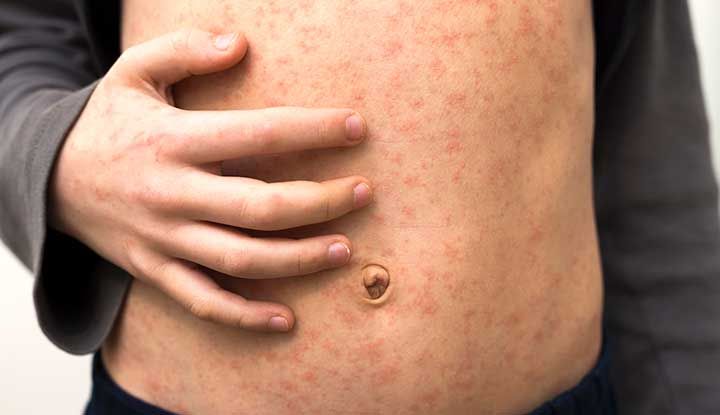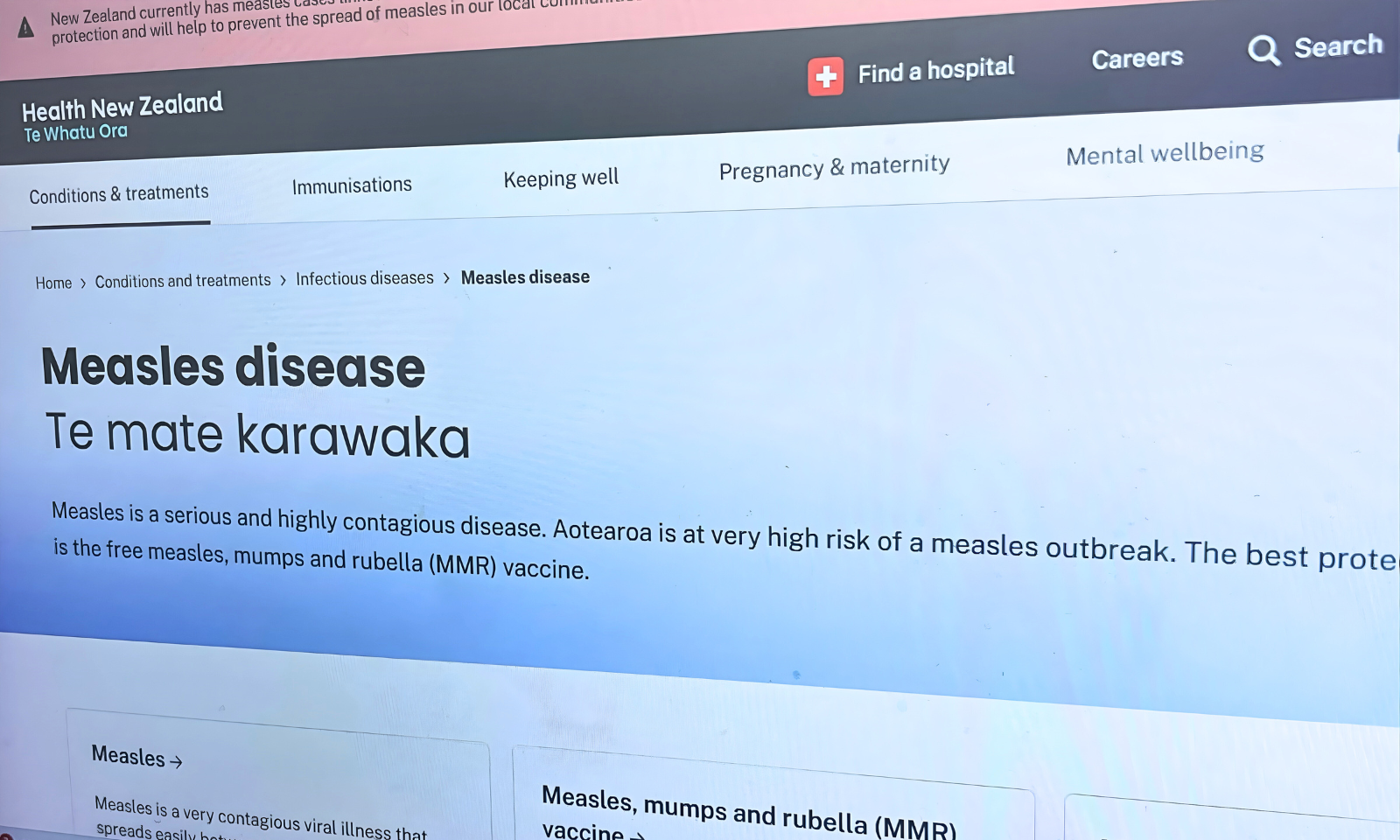

Auckland University's Mark Thomas and AUT's Dr Chris Puli'uvea urge people to check their immunisation status.
Photo/US CDC/Supplied/AUT
Pacific communities urged to get vaccinated as measles cases rise
Health experts warn the number of measles cases could pass 1000 within months unless immunisation rates improve.


Blacklisting squeeze hits Vanuatu families and businesses, the regulator VFSC warns


Pack your tissues: Free movies return with Tinā set for South Auckland

Manurewa charity requests $30,000 to keep Pacific seniors monthly gatherings

Blacklisting squeeze hits Vanuatu families and businesses, the regulator VFSC warns


Pack your tissues: Free movies return with Tinā set for South Auckland
Pacific health experts are warning families to get vaccinated as New Zealand’s measles outbreak spreads across the country.
Health NZ/Te Whatu Ora has confirmed 17 cases so far, with infections reported in Northland, Auckland, Taranaki, Wellington, and Nelson.
Locations of interest include Westfield St Luke’s, Auckland City Hospital emergency department, bus routes in Feilding and Wellington, and a supermarket in Taranaki.
Speaking with William Terite on Pacific Mornings, Dr Chris Puli’uvea, an immunologist at Auckland University of Technology (AUT), says low vaccination rates are increasing the chances of exposure.
“The measles virus is extremely contagious and it spreads very, very quickly. It can stay up in the air for up to two hours and that’s what makes it very dangerous,” he says.
“Given that our vaccination rates aren’t where they’re supposed to be, that’s just a double whammy for us, and so it’s extra tricky for us to have to manage at the moment.”
Listen to Christ Puli'uvea's full interview below.
The National Childhood Immunisation Schedule recommends children receive the first dose of the MMR (measles, mumps, and rubella) vaccine at 12 months, followed by a second dose at 15 months.
But as of June last year, only 49.6 per cent of Pacific 18-month-olds had received both doses.
Puli’uvea says other family members must also be immunised to protect vulnerable relatives.
“We have a proportion of people who can’t get vaccinated, and this is why it’s very, very important that we try and stamp this out the best way we can. The best way to do this is to get vaccinated.”

Young children are more vulnerable to be hospitalised with measles. Photo/Cleveland Clinic
Mark Thomas, an infectious diseases specialist at the University of Auckland, says the virus spreads fast and estimates that more than 1000 infections could occur within the next three months.
In 2019, New Zealand had a large measles outbreak with 2000 cases which eventually spread to Sāmoa, resulting in 83 deaths. Thomas is disappointed that warnings about a potential national epidemic had not prompted action.
“The epidemic will gradually grow. The doubling will probably take two or three weeks to begin with, but after that it’ll be even faster. The number of people that each infected person infects on average will be more than two or three.
“I’m surprised at the proportion of people who, despite all the warnings, have not got vaccinated and the slowness of interest of the authorities to do something about it. It’s a problem that’s languished for a long time.”
Puli’uvea says the current modelling reflects the level of risk.
“People can go around spreading the virus and not know they’re infectious. They may not show symptoms until several days afterwards; in the meantime, they’ll be going about their everyday lives at work, school or the supermarket.”

Health New Zealand's website has regular case updates and locations of interest. Photo/File
Protection takes time
The National Foundation for Infectious Diseases says measles is twice as contagious as Covid-19 and chickenpox, and can lead to lifelong complications, including brain and lung damage, as well as deafness.
On Friday, Health NZ reported a record 2098 doses of the MMR vaccine administered, but Thomas warns that protection is not immediate.
He also urges Pacific families not to be swayed by anti-vaccine misinformation and to listen to advice from trusted sources.
“It takes about a week for it [vaccine] to be effective. You can’t say that you’re okay one day after the jab. It takes longer than that, about seven to 10days.
“Don’t believe the so-called experts, who aren’t actually experts, who tell you that this is not a good vaccine. I haven’t gone looking for them, but I know that they’re out there.”
Health NZ officials continue to remind anyone born after 1969 to check their vaccination status and ensure they have received both MMR doses, as those born before that year are considered to have natural immunity.
There have been no deaths in the current outbreak.

Measles symptoms include a fever and a rash over the face and body. Photo/File
To find out more:
Book an MMR vaccine at https://bookmyvaccine.health.nz
Call the Vaccination Helpline: 0800 28 29 26 (Mon–Fri 8:30am–9pm, weekends 8:30am–2pm)
Find out how to check your status at https://info.health.nz/measles